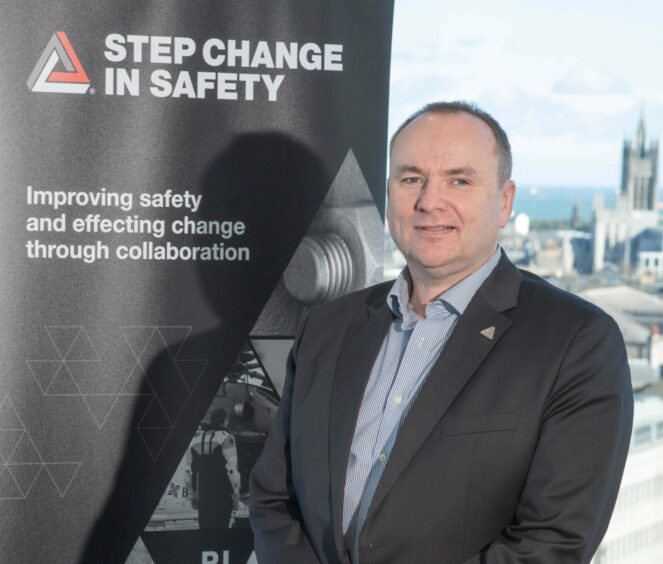
As the energy sector waits with bated breath for the Labour government’s first budget this month, the head of a leading safety trade body lists “uncertainty” as a major concern for offshore safety.
Craig Wiggins, chief executive of Step Change in Safety, said “uncertainty” in the industry, alongside “the great retirement” stands to impact offshore workers in the high-risk environment that is the North Sea.
Wiggins told Energy Voice that reports are surfacing of workers making “small mistakes” as tensions rise relating to the future of the UK’s hydrocarbons sector.
He said: “I’ve done a lot of work with psychological safety and when people are worried about certain things – and I think there is a concern across the whole workforce – people start to think about things slightly differently.
“They start drifting away, maybe not focused on that safety issue in that moment and maybe we make a mistake, and we all know that humans make mistakes.”
Wider North Sea uncertainty concerns
Rising workforce concern was also raised as an issue by BP’s senior vice president of North Sea Doris Reiter in a recent conversation with Energy Voice.
Last month Reiter commented on headlines relating to oil and gas job losses: “Obviously, people read newspapers, whether it’s online or in print, and yeah, it is a concern and clearly it brings a lot of uncertainty with it.”
Uncertainty has been driven by fears that changes to the tax system put tens of thousands of jobs at risk.
Trade body Offshore Energies UK (OEUK) estimates more than 200,000 people depend on the oil and gas sector and that as many as 35,000 jobs could be shed in a few short years due to declines in investor sentiment.
Trade bodies and industry leaders have warned the government of the risks of driving investment overseas.
Ahead of this year’s general election, OEUK wrote: “In the case of the offshore energy sector, the right policies can unlock opportunities to create growth and fresh jobs.”
‘The great retirement’ risks industry losing knowledge
In addition to the uncertainty felt by the workforce, there are a number of experienced workers who are leaving the sector in what Wiggins described as “the great retirement”.
He said that following the COVID-19 pandemic “there’s a lot of people with a tremendous amount of experience have left the industry already and will leave in the next two to three years”.
The trade body boss added: “There’s a real challenge with managing to attract young people into the industry, and that’s not just for our industry, it’s all industry.”
A lack of young people coming into the sector to replace those who have built up experience and understanding of best practice means that knowledge may be lost.
“I really do see it as making sure that the next generation have learned some of the lessons around Piper Alpha and Macondo [Deep Water Horizon] and all of these things that have happened.
“People have kind of made that the fabric of their being. I learned so much through Piper Alpha, I went offshore two or three days after that event and that’s been what I’ve learned and developed.”
On 6 July 1988, an explosion and the subsequent fallout on the Piper Alpha platform in the North Sea claimed 167 lives.
Findings from the Cullen enquiry that followed helped inform safety standards that are still in place in the global offshore energies industry.
“I think that transfer of knowledge is so important and it’s going to be a challenge,” he concluded.
Recommended for you

